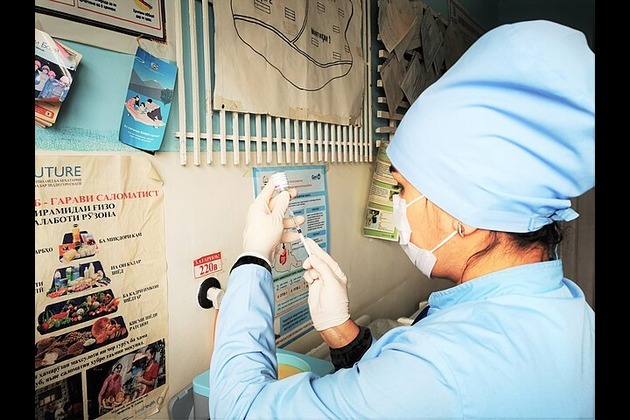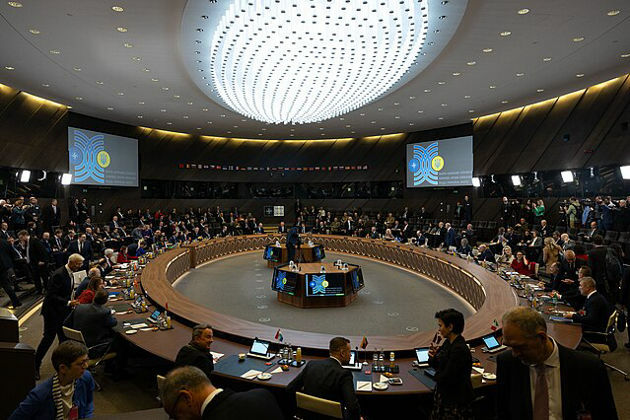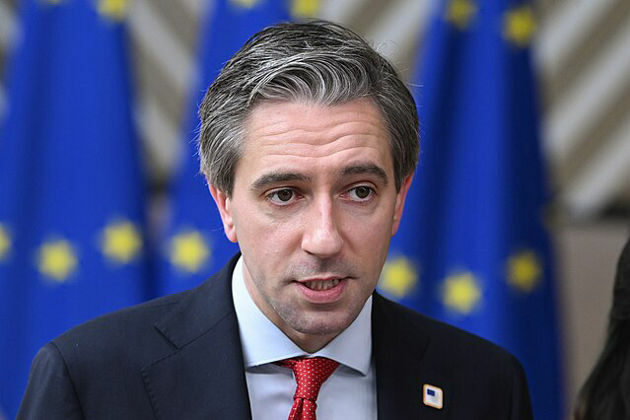Noncommunicable Diseases Cause 1.8 Million Avoidable Deaths
Novinite.com
27 Jun 2025, 18:02 GMT+10

Noncommunicable diseases (NCDs) remain the leading cause of death and disability in the world, including in the WHO European Region. Here, 1 in 5 men and 1 in 10 women die before 70 years of age because of NCDs such as cardiovascular diseases, cancers, chronic respiratory diseases and diabetes.
Each year, the Region sees 1.8million avoidable deaths from NCDs that are either preventable through effective public health measures or treatable with timely access to quality health care.
Of these avoidable NCD deaths, 60% are linked to preventable causes such as tobacco and alcohol use, high blood pressure, unhealthy diets, obesity, and physical inactivity ? all of which can be addressed through stronger public health policies. The remaining 40% are from treatable causes where death could be prevented or delayed with timely diagnosis and access to quality care.
The new WHO/Europe report ?Avoidable mortality, risk factors and policies for tackling NCDs: leveraging data for impact? warns that progress in reducing premature mortality from NCDs has been derailed by the COVID-19 pandemic. As a result, the Region is off track to meet the global NCD targets for 2025 and 2030.
"Noncommunicable diseases aren't just preventable or treatable; they are also largely ignored. Yet the truth is, if NCDs were a virus, the world would be in lockdown,? said Dr Hans Henri P. Kluge, WHO Regional Director for Europe. ?Our findings show that nearly two million deaths can be avoided every year with better prevention or treatment, while saving billions of dollars in healthcare costs. Addressing NCDs with bold prevention policies is a political choice. The high burden of NCDs in our societies is not inevitable. We have the power and tools to turn things around.?
Inaction is costly
Avoidable deaths from NCDs continue to take a devastating toll both in lives lost and in economic impact. In the Region, productivity losses linked to these deaths are estimated at over US$514.5billion each year. Yet despite clear evidence of high returns on investment, funding for NCD prevention remains critically inadequate.
While gaps between countries have declined since 2010, stark disparities still remain. Preventable risk factors ? including tobacco use, obesity, high blood pressure and diabetes ? are rising and increasingly concentrated in the eastern part of the Region. Meanwhile, cardiovascular diseases and preventable cancer mortality remain disproportionately high among men.
Progress is possible
Despitethe enormous challenges that NCDs present, the reporthighlights cause for optimism. Ten countriesin the Regionhave alreadyachievedthe 2025 target ofa25% reductioninpremature mortality from the 4 major NCDs for both men and women.
The10 countries ? Belgium, Denmark, Estonia, Israel, Kazakhstan, Luxembourg, the Netherlands (Kingdom of the), Norway, Sweden and Switzerland? share important characteristics:
- they have implemented comprehensive packages ofWHO best buys? proven, cost-effective measures to address NCDs; and
- they have reduced the prevalence of multiple risk factors and strengthened their health system responses, leading to annual declines of over 2% in both preventable and treatable NCD mortality, particularly from cardiovascular diseases and cancers.
The report shows that an additional 26 countries can still reach the 25% reduction target if theysustain and intensify theirinvestments in NCD prevention andcare.
?A healthier future tomorrow requires bold action today. Countries in the WHO European Region can reach their 2030 targets. The upcoming Fourth High-level Meeting of the United Nations General Assembly on NCDs is a pivotal moment to recommit to NCDs,? said DrGauden Galea, Strategic Adviser to the Regional Director's Special Initiative on NCDs and Innovation.
?This report offers a clear, data-driven roadmap for action ? and a wake-up call we must not ignore.?
Data for impact: the path forward
Effectively tackling NCDs is good for public health, but it is also good for our societies and economies. Reducing avoidable deaths and illness from NCDs can boost countries? competitiveness by helping people live longer and healthier lives, allowing them to contribute to society in meaningful ways, and reducing health-related costs.
To recover lost ground and accelerate progress, the report urges countries to set ambitious but achievable targets and strengthen data gathering to track progress and improve accountability. Prevention and treatment must go hand in hand, supported by coordinated, multisectoral action. This means creating joined-up policies that tackle the social, environmental, commercial and digital factors that shape our health and support long-term well-being.
The report's key recommendations include the following:
- Reduce exposure to risk factors and strengthen health system responses to NCDs, including access to early detection and quality treatment, especially in underserved communities.
- Accelerate progress by implementing NCDquick buys? interventions that demonstrate measurable public health impact in less than 5 years.
- Strengthen multisectoral engagement to tackle drivers beyond the health sector.
- Leverage data for impact: invest in high-quality surveillance and monitoring of NCDs and use it effectively for both policy-making and evaluation.
- Integrate NCD prevention and care in national emergency response frameworks.
Source:WHO European Region
 Share
Share
 Tweet
Tweet
 Share
Share
 Flip
Flip
 Email
Email
Watch latest videos
Subscribe and Follow
Get a daily dose of Denmark Sun news through our daily email, its complimentary and keeps you fully up to date with world and business news as well.
News RELEASES
Publish news of your business, community or sports group, personnel appointments, major event and more by submitting a news release to Denmark Sun.
More InformationEurope
SectionWoman sues Boots in Ireland, blames migraine drug for brain bleed
DUBLIN, Ireland: A 63-year-old woman, Sigrid O'Meara from Ballincurry, Longford, is suing Boots Pharmacy in the High Court. She says...
Kennedy halts U.S. support for Gavi over vaccine questions
WASHINGTON, D.C.: The United States will stop providing financial support to Gavi, the global vaccine alliance that helps immunize...
Alliance eyes major military buildup to counter Russia
THE HAGUE, Netherlands: NATO is pressing ahead with a sweeping new defense spending target, calling on all 32 member nations to commit...
Ireland’s labour court backs pay rise for Bus Éireann despite losses
DUBLIN, Ireland: Bus Éireann has told the Labour Court that it lost 4.2 million euros in 2024 and expects to lose a similar amount...
U2’s The Edge celebrates Ireland citizenship milestone
DUBLIN, Ireland: U2's legendary guitarist, The Edge, has hailed June 23 as a monumental day after he officially became an Irish citizen....
Ireland’s Deputy PM confirms return of evacuated nationals
DUBLIN, Ireland: Fifteen Irish citizens and their dependents have been evacuated from Israel due to the heightened state of alert over...
Scandinavia
SectionAlliance eyes major military buildup to counter Russia
THE HAGUE, Netherlands: NATO is pressing ahead with a sweeping new defense spending target, calling on all 32 member nations to commit...
US and Israeli strikes on Iran violate international law Lukashenko
Such attacks could pose a danger to people all over the globe, the Belarusian leader has said The US and Israel have brazenly violated...
US and Israeli strikes on Iran violate international law - Lukashenko
Such attacks could pose a danger to people all over the globe, the Belarusian leader has said The US and Israel have brazenly violated...
Noncommunicable Diseases Cause 1.8 Million Avoidable Deaths
Noncommunicable diseases (NCDs) remain the leading cause of death and disability in the world, including in the WHO European Region....
What Danish climate migration drama, Families Like Ours, gets wrong about rising sea levels
In the Danish TV drama Families Like Ours, one melancholic line from high-school student Laura captures the emotional toll of climate...
Scandinavia has its own dark history of assimilating Indigenous people, and churches played a role - but are apologizing
In May 2025, Tapio Luoma, archbishop of the Evangelical Lutheran Church of Finland, delivered an apology to the Sami, the only recognized...











